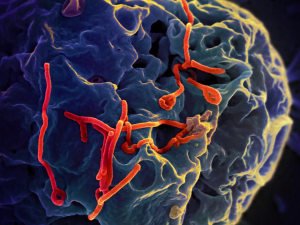Research published today in the journal Science shows how genetics influence the severity of symptoms in mice infected with the Ebola virus. Effects ranged from total resistance with no symptoms, to severe symptoms and death – and these depended on the genetic background of the infected mice.

Our colleagues at the UK SMC collected the following expert commentary. Feel free to use these quotes in your reporting. If you would like to contact a New Zealand expert, please contact the SMC (04 499 5476; smc@sciencemediacentre.co.nz).
Prof Andrew Easton, Professor of Virology, University of Warwick, comments:
“This paper demonstrates that the genes of the host play a role in determining the outcome of Ebola infection in terms of the severity of the disease, at least in mice. This is not surprising as similar observations have been made for many viruses. The paper shows that the precise cells infected and extent of Ebola virus replication is, in part, determined by the host genes. Most of these genes are involved in the very earliest stages of our immune response to infection, again an observation seen with other viruses.
“While this is valuable information the data in the paper cannot be directly extrapolated to the human situation and used as a basis for potential therapy at the moment as, unlike the mice used in the study, humans are extensively outbred and have a large variety of genetic combinations, making assessment of the impact of the genes in humans difficult.
“The paper also does not assess the role of environmental factors that undoubtedly also play a role in the disease process such as the underlying health status of the at-risk population.
“A strongly positive note from the data is that is suggests that it may not be necessary to completely eliminate Ebola virus from the body during infection to ensure that there is no disease, and that reduction of virus growth in the body may offer alleviation from some aspects of the disease – this is heartening as it may suggest that the hurdle that new treatments have to surmount may be lower than initially expected.”
Prof Jonathan Ball, Professor of Molecular Virology, University of Nottingham, comments:
“We know that host genetics influences infection outcome for a range of viruses, like HIV and norovirus. We’ve also suspected that genetics plays a role in susceptibility to Ebola virus infection.
“In the current mouse model study, the finding that levels of expression of a gene involved in coagulation differs between mice showing different severity of disease symptoms is really intriguing.
“Of course, this is merely an association and needs to be explored more to know definitively how expression is controlled and how it might influence disease. It will also be important to see if a similar phenomenon is happening in humans
“It’s a reminder of how infectious diseases shape the evolution of a host; and the human host is no different to any other.”